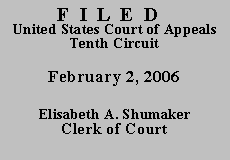

| MICHAEL LEE STROPE, also known as Gordon E. Strope, |
|
Defendants moved for summary judgment on multiple grounds including a failure to exhaust. R. Docs. 46, 47 at 10-11. The district court concluded that Mr. Strope had failed to satisfy the total exhaustion rule of 42 U.S.C. § 1997e(a) and Steele v. Federal Bureau of Prisons, 355 F.3d 1204, 1211 (10th Cir. 2003). It found that Mr. Strope had not exhausted claims (5) and (6), and that Mr. Strope's complaint admitted lack of exhaustion by noting that two grievances had not been answered at the time of filing. R. Doc. 68 at 4; Doc. 1 at 11. Without benefit of a response by the Defendants, the district court next denied Mr. Strope's Rule 60(b) motion to reconsider, R. Doc. 70, finding that Mr. Strope's "motion merely reargues points this court has already considered and dismissed." R. Doc. 71 at 1.
While we understand that Mr. Strope attached documentary evidence to his Rule 60(b) motion indicating that (1) he had exhausted his claims and (2) the two grievances identified by the district court as evidence of the failure to exhaust were not processed by prison officials, we note that as a general rule, a party is not allowed to marshal evidence in response to a summary judgment motion after it has been decided. And although the failure to process a grievance may render an administrative remedy unavailable, see Jernigan v. Stuchell, 304 F.3d 1030, 1032 (10th Cir. 2002), it was incumbent upon Mr. Strope to marshal any such evidence before the district court decided the summary judgment motion, not after. We review the denial of a Fed. R. Civ. P. 60(b) motion for an abuse of discretion. In re Gledhill, 76 F.3d 1070, 1080 (10th Cir. 1996). The denial of a Rule 60(b) motion is not an abuse of discretion where, as here, the motion simply attempts to advance argument supported by evidence previously available but not presented to the court. See Servants of Paraclete v. Does, 204 F.3d 1005, 1012 (10th Cir. 2000); see also Van Skiver v. United States, 952 F.2d 1241, 1243 (10th Cir. 1991) (internal quotations omitted). As such, we find no abuse of discretion by the district court in denying Mr. Strope's Rule 60(b) motion.
We remind Mr. Strope that he must continue to make partial payments until the entirety of his appellate filing fee balance is paid.
AFFIRMED.
Entered for the Court
Paul J. Kelly, Jr.
Circuit Judge
*. This order and judgment is not binding precedent, except under the doctrines of law of the case, res judicata, and collateral estoppel. This court generally disfavors the citation of orders and judgments; nevertheless, an order and judgment may be cited under the terms and conditions of 10th Cir. R. 36.3.
2. After examining the briefs and the appellate record, this three-judge panel has determined unanimously that oral argument would not be of material assistance in the determination of this appeal. See Fed. R. App. P. 34(a); 10th Cir. R. 34.1(G). The case is therefore ordered submitted without oral argument.